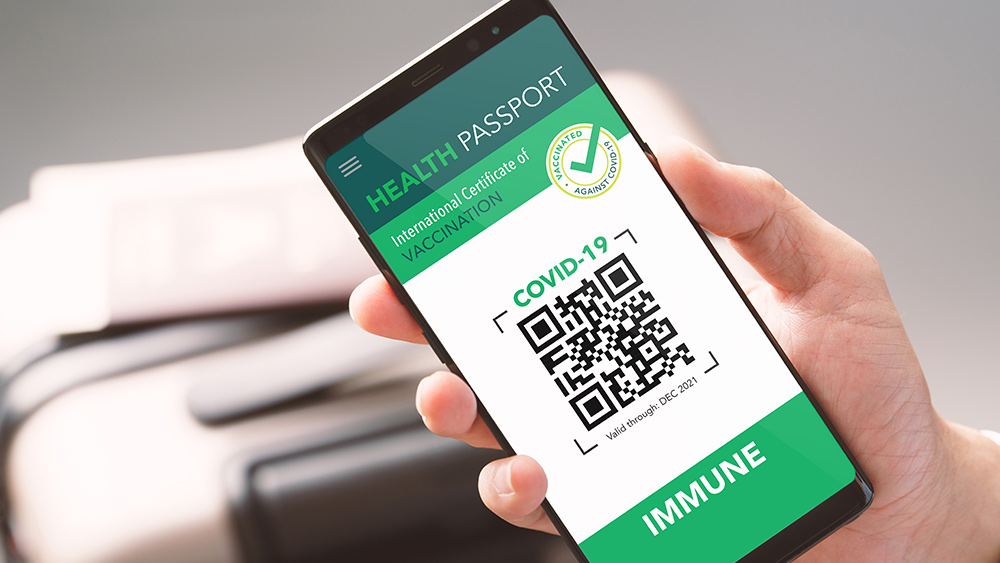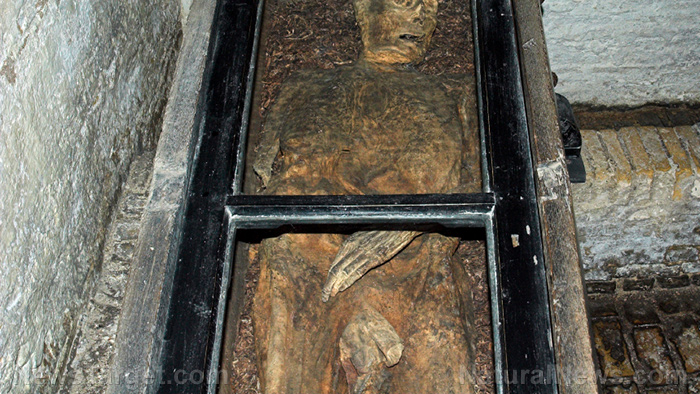
In a bid to slow the spread of the Wuhan coronavirus (COVID-19), the Italian government has made COVID-19 health passes mandatory for all workers in both public and private sectors. It is the first European country to do so. Officials within Prime Minister Mario Draghi's government passed the decree on Thursday, Sept. 16.
The health pass, also known as the "green pass," shows whether a person has been fully vaccinated, freshly tested negative for SARS-CoV-2 – the virus that causes COVID-19 – or has recently recovered from the disease. The decree also applies to self-employed workers. The passes are available in both digital and paper formats.
Starting Oct. 15, workers entering their workplace without a health pass will face a fine. They will be suspended without pay after five days of absence. Meanwhile, unemployed citizens and those living on pension will be exempted from showing their health pass.
Officials see the country's mandatory health pass as a strong incentive to get vaccinated because the alternative is frequent swab tests. Workers would have to pay for these tests themselves unless their employers choose to do so. But workers who can't be vaccinated due to health reasons will have tests paid for by the government.
Draghi has pushed through with the health pass mandate for workers despite strong opposition from members of his bipartisan coalition government, who argued against requiring Italians to get vaccinated.
Draghi himself has expressed an openness to a universal vaccination mandate for all Italians. Officials say they might resort to such a mandate if infection numbers surge in winter.
Workers now required to show health passes
Italy's now mandatory health pass is an extension of the "digital green certificate" of the European Union (EU), which was introduced in March. The certificate allows EU citizens who have been vaccinated, tested negative or recovered from COVID-19 to travel freely within Europe.
Initially, Italy's health pass was only required to be able to eat indoors at restaurants and enter stadiums, gyms, theaters, cinemas, museums, swimming pools and recreational centers. But on Wednesday, Sept. 1, officials also made the health pass mandatory for teachers and university students to travel on trains and planes. (Related: New update to UK NHS tracking app turns it into a VACCINE PASSPORT.)
Officials subsequently widened the scope of the health pass to include all workers. According to Roberto Speranza, Italy's health minister, they extended the obligation of the health pass to the entire world of work for two reasons: To make workplaces safer and to make the government's vaccination campaign stronger.
The step also reflects officials' belief that the country can't afford another wave of infections, which would force a return to lockdowns and other stringent protocols.
The decree mandating health passes for workers comes as the country reports more than 4.6 million COVID-19 cases and over 130,000 deaths, according to recent data from Johns Hopkins University.
To date, 74 percent of Italians have had at least one shot of a COVID-19 vaccine and 68 percent are fully vaccinated. About 10 million Italians remain unvaccinated.
Other European countries are also requiring health passes
Several other European countries have also made COVID-19 health passes mandatory in public venues, such as restaurants, museums and cinemas. Governments have been cracking down on unvaccinated citizens as well.
Greece, for instance, began testing unvaccinated all workers in both public and private sectors. Last month, the government also announced that restaurants, clubs and other entertainment venues will be off-limits for unvaccinated citizens starting September.
To check customers' "safe status," establishments would need to check their Greek COVID-19 Pass, which verifies whether an individual has been vaccinated, recovered from COVID-19 or has freshly tested negative for COVID-19.
Meanwhile, thousands protested in Paris and other French cities in July after the French government mandated health passes for entry into public venues. Critics argue that the mandate tramples on freedoms.
For more articles with updates on the coronavirus pandemic, visit Pandemic.news.
Sources include:
Please contact us for more information.




















